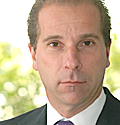Bonds: ‘Yields in recovery mode after brief setback’

After strong ups and downs over the course of the week, this afternoon's labour market report in the USA should provide fresh impetus. The impact of the conflict in the Middle East has so far been limited. High-yield corporate bonds remain in demand.
4 October 2024. FRANKFURT (Börse Frankfurt). The tensions in the Middle East have caused movement on the bond markets this week. The yield on 10-year German government bonds fell to near the two per cent mark on Tuesday, its lowest level since the beginning of January. ‘In addition to the euphoria of interest rate cuts, rising demand for security drove prices upwards, as fears of an open war between Israel and Iran are growing in the Middle East conflict,’ explain the analysts at LBBW.
Worries of an escalation quickly ticked off
Later in the week, however, the tide turned and yields climbed back up to 2.17 per cent. ‘The fear of an escalation in the Middle East has dissipated somewhat,’ states Arthur Brunner from ICF Bank. In addition, the still relatively high core rate of inflation data, rising oil prices and the economic data in the USA, which was not quite as bad as expected, took some of the euphoria about further significant interest rate cuts out of the market. In this context, Fed Chairman Jerome Powell emphasised that the latest interest rate cut campaign should not necessarily be seen as a benchmark for future easing measures. As a result, the ten-year US yield rose from a weekly low of 3.70 per cent to 3.85 per cent.
Further developments on the bond markets are also likely to be influenced by this afternoon's US labour market data for September. According to Commerzbank, this week's data will be ‘the decisive signpost for the future course of the US Federal Reserve's monetary policy’. In the run-up to the figures, Tim Oechsner from Steubing AG reports very quiet trading overall. ‘Investors are staying on the sidelines, the volume of demand is relatively low’.

New issues sought, Lufthansa bond sold
According to the trader, some new issues are attracting interest. The US semiconductor company Broadcom has launched three new bonds on the market, including a bond maturing in February 2028 with a coupon of 4.15 per cent and semi-annual interest payments with a minimum investment of USD 2,000 (US11135FCA75). Aareal Bank's bond (DE000AAR0447) offers a slightly lower yield with a coupon of 2.625 per cent and a term until April 2030. Knorr-Bremse is offering a coupon of 3.0 per cent until September 2029 (XS2905504671).
Another recently issued bond from the automotive supplier with a coupon of 3.25 per cent and a maturity of three years longer is sought after by clients of Walter Ludwig Wertpapierhandelsbank. Its trader Gregor Daniel also reports good demand for the bonds of MTU Aero (XS2887896574) and E.ON (XS2791960664), which mature in 2031 and 2044 and yield 3.6 per cent and 3.9 per cent respectively. On the sell side: a Deutsche Lufthansa (XS1271836600) bond maturing in 2075. Daniel points to the armed conflict in Israel/Iran as a possible reason.
Mutares bonds in demand after price slump
At ICF Bank, Arthur Brunner registered the highest turnover in two Mutares bonds. The investment holding company was recently the victim of a short-seller attack. Compared to the share price, the recovery in Mutares bonds has so far been rather moderate. The bond maturing in 2027, which currently offers yields of around 13 per cent at a price of around 99 per cent (NO0012530965), has been the most actively traded. A bond from Booster Precision Components (NO0012713520), which is also in demand, offers similar yield opportunities. The new bond from Grenke Finance, which matures at the beginning of 2029 and has a coupon of 5.0 per cent, is also in demand. The company reported convincing quarterly figures this week (XS2905582479).

From Thomas Koch, 4 October 2024, © Deutsche Börse
About the author
Thomas Koch is a CEFA investment analyst, investment specialist for structured products and a certified certificate consultant. He has been a freelance journalist covering events on the capital markets since the beginning of 2006.
Feedback and questions to redaktion@deutsche-boerse.com

Koch




